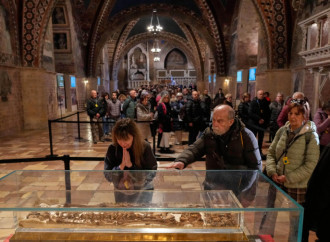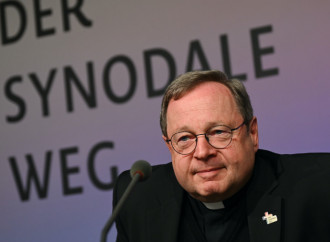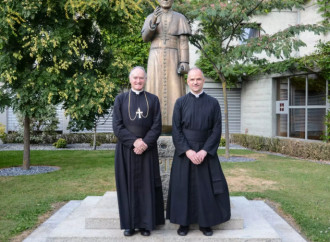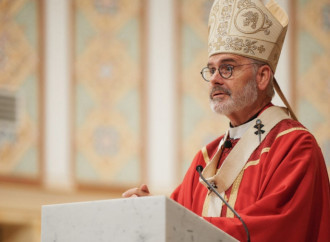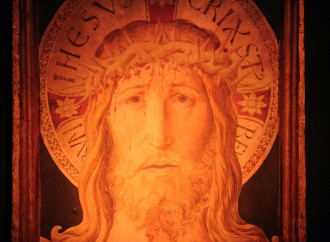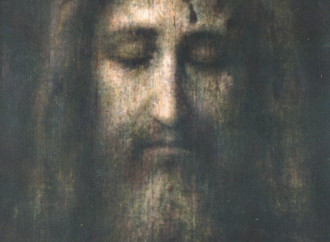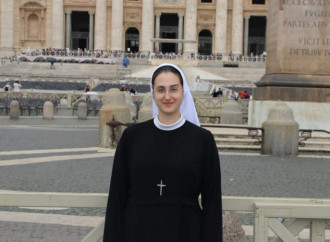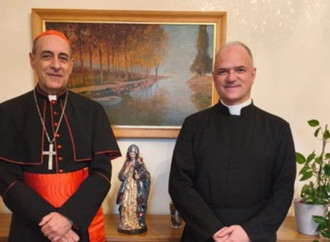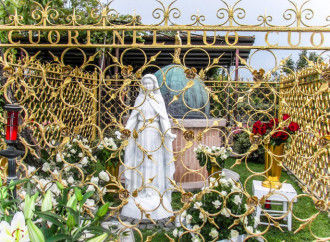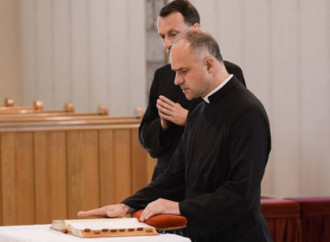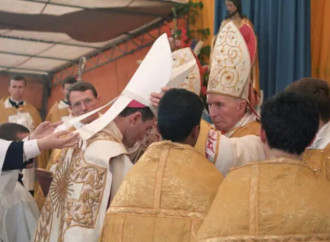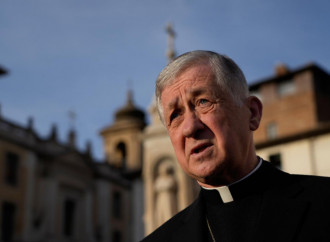The bones of Saint Francis proclaim that God has redeemed the flesh
There is a common thread linking the disputes surrounding the body of the ‘Poverello’ with the veneration of his mortal remains in Assisi today. Christianity is not spiritualism; the Word can also be seen and touched in the material traces left by a holy life.
German Synod aims to force bishops to kowtow to its agenda
The revolution sought by the German Synodal Way is being put to the test in the election for president of the Bishops' Conference. A split is possible over issues such as same-sex unions, celibacy, women's ordination, and the role of the laity. The Synodal Path is also preparing to monitor bishops who reject the innovations.
Double rejection: Lefebvrians reject Rome's proposals
No U-turn from the Society of Saint Pius X after the Holy See's request to suspend episcopal ordinations and resume theological dialogue. Don Pagliarani criticises Müller for the failure of past talks and tries to ingratiate himself with Fernández by leveraging the “todos, todos, todos”
United States, bishops oppose appointment of pro-abortion professor
The Catholic University of Notre Dame appoints a pro-abortion professor to head one of its institutes. Scandal among the faithful. The bishop takes a stand along with a dozen other confreres, including the president of the Episcopal Conference.
Following Christ to the Cross through the symbols of Lent
From the biblical reference to forty days to liturgical signs and ascetic practices, everything on the Lenten journey contributes to our immersion in the mystery of Redemption. A translation from Italian of an excerpt from the current issue of La Bussola Monthly magazine.
The Holy Face of Jesus and the call to saintliness
For Saint John Paul II, growth in holiness was inextricably linked to the mystery of the Holy Face of Jesus — a theme that the Polish Pope explored in depth in Novo Millennio Ineunte. For Wojtyla, this was not just one devotion among many, but a way of living the entirety of Christian life.
Pope appoints Medjugorje nun as new deputy director of Vatican Press Office
Cristiane Murray leaves the deputy directorship of the Vatican Press Office to Sister Nina Benedikta Krapić. The Croatian nun, who discovered her vocation in Medjugorje, is taking over from the Brazilian laywoman. The latter represented a certain social-ecological line and an ecclesial era that is coming to an end. It’s the first step in the anticipated overhaul of Vatican communications.
Rome-Écône, halt ordinations to continue dialogue
Following his meeting with Cardinal Fernández, the Superior General of the Society of Saint Pius X returns home with a proposal for theological discussion and a request not to ordain new bishops without papal mandate. This is the first step to take (or rather not to take) at the crossroads between schism and the gradual restoration of full communion.
Our Lady of the Roses and her relationship with Franciscan saints
The central location of the as yet unrecognised Marian apparitions in San Damiano (Piacenza) is the 'Garden of Paradise', which has four patron saints, all of whom are Franciscans. The prophecies came true, convincing the initially sceptical parish priest to believe in the apparitions.
Freedom outside the Church — the Lefebvrians real goal
Approve the announced episcopal ordinations, but without granting them any canonical status. Don Pagliarani's request to the Pope shows that it is not Rome that refuses to regularise the Society of Saint Pius X, but rather the latter that claims to save souls outside the Mystical Body of Christ.
A second breakaway will see five new Lefebvrian bishops ordained
Episcopal ordinations without a papal mandate, as in 1988. On 1 July, the Society of Saint Pius X will repeat Archbishop Lefebvre's gesture, this time ordaining an additional bishop.The Holy See has expressed its willingness to continue dialogue in order to avoid a new rupture.
Leo XIV has a problem, his name is Cupich
The Cardinal and Archbishop of Chicago's interventionism in matters of internal and ecclesiastical politics, such as his attacks on the ancient rite, risks causing difficulties for the Pope, who favours unity. Cupich is approaching 77 years of age. When will he resign from his position as leader of the archdiocese
